ΓΥΜΝΑΣΙΟ ΔΙΑΠΟΛΙΤΙΣΜΙΚΗΣ ΕΚΠΑΙΔΕΥΣΗΣ ΑΧΑΡΝΩΝ
Α. READ THE PASSAGE AND ANSWER THE QUESTIONS
THE TIMBER WOLF
Wolves usually hunt in a family pack (3 to 30 wolves). In this way, they can kill large animals. Parents teach pups how to hunt. They can eat a lot of meat at one meal and then go without food for a long time. They usually eat small animals like mice, rabbits and squirrels.
THE BROWN BEAR
Brown bears eat animals and plants. They don’t often attack humans. When they attack, it is because they can’t see very well.
THE RHINO
Rhinos eat grass, branches and leaves. Their skin is very thick and they’ve got one or two horns. They’re grey or brown and they’re hairless. People kill rhinos for their horn. They use it to make medicine.
1.Which animal teaches the pups how to hunt?
_____________________________________________________________________________
2.When do bears become dangerous for people?
_____________________________________________________________________________
3.Why do people kill rhinos?
_____________________________________________________________________________
4.What do people need rhinos’ horn for?
_____________________________________________________________________________
B.1. WRITE THE PLURAL
| 1. bag
|
|
| 2. baby
|
|
| 3.house
|
|
| 4.school
|
|
| 5.child
|
|
| 6.potato
|
|
| 7.family
|
|
| 8.woman
|
B2a. WRITE THE TIME.
| a) 12.15 |
| b) 3.40 |
| c) 5.10 |
| d) 11.30 |
| e) 8.25 |
B2.b WRITE THE JOB. For example build-builder
- art_______ 2. act_____ 3. police______ 4. engine _______ 5. sail______
B.3 CIRCLE THE CORRECT WORD.
- There is/are a hotel in my neighbourhood.
- There is/are narrow streets in Plaka.
- Are there some/any cafés in Cambridge?
- There are some/any shops near my house.
- We’ve/’re got some old coins.
- There aren’t some/any books on my desk.
- Are/Is there any theatres in Nafplio?
- My eyes is/are blue.
- Is Helen a good student? Yes, she is/isn’t.
- I live in/on Orestiada.
B.4 PUT THE VERBS IN THE SIMPLE PRESENT
- ……… your dad ……… (take) any exercise?
- My mum often ……… (go) shopping with her friends.
- They ……… (play) basketball at the weekends.
- Nicky ……… (not/enjoy) listening to jazz.
- They……… (want) to buy her a present.
- The baby often ……… (cry) at night.
ΓΥΜΝΑΣΙΟ ΔΙΑΠΟΛΙΤΙΣΜΙΚΗΣ ΕΚΠΑΙΔΕΥΣΗΣ ΑΧΑΡΝΩΝ
ΑΓΓΛΙΚΑ
Α ΓΥΜΝΑΣΙΟΥ ΠΡΟΧΩΡΗΜΕΝΟΙ
Α. READ THE PASSAGE AND ANSWER THE QUESTIONS.
At the end of the first century AD the Roman Empire covered most of Europe, North Africa and parts of Asia. The Roman Emperors built excellent roads which people used to trade and communicate. There were two official languages, Latin and Greek. Emperor Hadrian travelled all over his empire and studied all the cultures. He built an eighty-mile-long wall in Britain to keep out the ‘barbarians’, the people who were not under Roman rule. Hadrian was the first Roman emperor who had a beard. He made beards popular among the Romans. Every important Roman town had an amphitheatre where people watched gladiators and wild animals fight to death. Professional gladiators trained in special schools. The murmillo gladiators wore bronze helmets which protected the face and neck.
- How many continents did the Roman Empire cover at the end of the first century?
—————————————————————————————————————
- Which were the official languages of the empire?
—————————————————————————————————————
- Why did Hadrian build a wall in Britain?
—————————————————————————————————————
- Why did the Romans go to an amphitheatre?
—————————————————————————————————————
Β.1a PUT THE VERBS IN SIMPLE PAST, PRESENT PERFECT OR PAST CONTINUOUS:
- When I ——————(see) her, she ———————–(wear) her favourite T-shirt.
- They ——————-(recycle) 100 aluminium cans this week.
- They ——————(lie) on the beach when the tsunami hit the seaside.
- Yesterday Mary went to the police station and ——————-(find) one of the policemen.
- I ——————— (not/join) an eco team yet.
B.1b Choose the correct word to complete the sentences.
- How many/ much hamburgers do you eat every week?
- Is there much of / any orange juice in the bottle?
- You shouldn’t eat so much/ many chocolate.
- How any/ much sugar do you want in your milk?
- I haven’t got many / any money with me.
Β.2. Write questions for the following answers.
- Why ________________________________ ?
My dad often relaxes in the afternoon because he is tired .
- What _______________________________?
My teacher is explaining the text.
- Who________________________________?
My mum loves wearing long dresses.
- What time ____________________________?
I leave home at about seven in the morings.
- When ________________________________?
My friends and I go swimming every morning in the summer.
Β.3.Expand the sentences.
1 John/fix/his/old/bike/this morning
_______________________________________
2 My uncle / love/ going/ theatre
_______________________________________
3 your brothers/ always/ play/ chess/ weekends?
_______________________________________
- Dennis/ study/ his exam/ for tomorrow
________________________________________
- Mary/not/ like/ cleaning the house/ Sundays
________________________________________
B.4a. Complete the sentences with the correct form of the adjectives in brackets.
- My shoes are ________ (dirty) than yours. I have to clean them.
- Your computer is ______ (bad) than my father’s.
- The Aegean Sea is ______ (large) than the Ionian Sea.
- Which book is ______(good)? The black or the brown one?
- Her T-shirt looks _______ (comfortable ) than mine
.
B.4b.Complete the sentences with the following modals:
may/ should/ mustn’t/don’t have to
- Your marks are low. You _____ work harder from now on!
2.You ______ go on a diet. You are so slim!
- It is very cold! It ____ even snow at night.
- You _____ eat many hamburgers. They are unhealthy.
- I don’t know where mum is. She _____ be at the market or at the doctor’s.
ΔΙΑΠΟΛΙΤΙΣΜΙΚΟ ΓΥΜΝΑΣΙΟ ΑΧΑΡΝΩΝ
ΑΓΓΛΙΚΑ
Α ΓΥΜΝΑΣΙΟΥ ΑΡΧΑΡΙΟΙ
A.1. α)ΓΡΑΨΤΕ ΤΟΥΣ ΑΡΙΘΜΟΥΣ ΣΤΑ ΑΓΓΛΙΚΑ
1, 4, 5, 8, 9
β)ΣΧΗΜΑΤΙΣΤΕ ΤΟΝ ΠΛΗΘΥΝΤΙΚΟ ΤΩΝ ΟΥΣΙΑΣΤΙΚΩΝ
woman, jacket, lady, friend, bus
A.2. α)ΣΥΜΠΛΗΡΩΣΤΕ ΤΙΣ ΠΡΟΤΑΣΕΙΣ ΜΕ ΤΟ ΡΗΜΑ to be ΣΤΟ ΚΑΤΑΛΛΗΛΟ ΠΡΟΣΩΠΟ
1.He ———- in his bedroom.
2.I ———– under the bed.
3.We ————- twelve years old.
4.Peter ———— my brother.
β)ΔΙΟΡΘΩΣΤΕ ΤΑ ΛΑΘΗ ΣΤΙΣ ΠΑΡΑΚΑΤΩ ΛΕΞΕΙΣ
pensil, rouler, backpuk ,grantmather, aunte
A.3. α) ΣΥΜΠΛΗΡΩΣΤΕ ΤΙΣ ΠΡΟΤΑΣΕΙΣ ΜΕ ΤΟ ΣΩΣΤΟ ΚΤΗΤΙΚΟ
ΕΠΙΘΕΤΟ
1.I have got a cat.It’s ———— cat.
2.He has got a running suit.It’s—————– running suit.
3.We have got a computer.It’s ——————- computer.
4.She has got an umbrella.It’s ——————– umbrella.
β) ΓΡΑΨΤΕ ΤΙΣ ΜΕΡΕΣ ΤΗΣ ΕΒΔΟΜΑΔΑΣ ΣΤΑ ΑΓΓΛΙΚΑ
Α.4. ΑΠΑΝΤΗΣΤΕ ΤΙΣ ΠΑΡΑΚΑΤΩ ΕΡΩΤΗΣΕΙΣ ΣΤΑ ΑΓΓΛΙΚΑ
1.Αre you French?
2.Where are you from?
3.What is your first name?
4.What is your last name?
ΓΥΜΝΑΣΙΟ ΔΙΑΠΟΛΙΤΙΣΜΙΚΗΣ ΕΚΠΑΙΔΕΥΣΗΣ ΑΧΑΡΝΩΝ
Α’ Γυμνασίου (BEGINNERS)
A. READING COMPREHENSION
Read the text carefully and give full answers to the following questions:
THE TIMBER WOLF
Wolves usually hunt in a family pack (3 to 30 wolves). In this way, they can kill large animals. Parents teach pups how to hunt. They can eat a lot of meat at one meal and then go without food for a long time. They usually eat small animals like mice, rabbits and squirrels.
THE BROWN BEAR
Brown bears eat animals and plants. They don’t often attack humans. When they attack, it is because they can’t see very well.
THE RHINO
Rhinos eat grass, branches and leaves. Their skin is very thick and they’ve got one or two horns. They’re grey or brown and they’re hairless. People kill rhinos for their horn. They use it to make medicine.
1a.Which animal teaches the pups how to hunt?
1b. Is it difficult for a wolf to kill a large animal? Why yes/not?
2a. Which animal is a herbivore and which animal is a carnivore?
How do you know this?
2b.When do bears become dangerous for people?
3a.Which animal can stay without eating any food for days?
3b.Which animals have got fur and which one has no hair at all?
4a.Why do people hunt rhinos?
4b.What do people need rhinos’ horn for?
GRAMMAR
1a. Write the time.
a.12.15_____ b. 3.40_____ c.5.10____ d. 11.30_____ e. 8.25_____
1b. Write the verbs in the correct form of either Present Simple or Present Continuous.
1.Kate ______ (not/go) to work six days a week.
- Look! My teachers ________ (smoke).
- Roy _____ ( have) a great time at the party tonight.
- ____ he often ____ (visit) his grandparents?
- There ____ (be) two good films at the cinema in the evening.
- Write questions for the following answers.
- Why ……………………………… ?
My dad often relaxes in the afternoon because he is tired .
- What ____________________?
My teacher is explaining the text.
- Who_____________________?
My mum loves wearing long dresses.
- What time _______________?
I leave home at about seven in the morings.
- When ____________________?
My friends and I go swimming every morning in the summer.
- Expand the sentences.
1 John/fix/his/old/bike/this morning
_______________________________
2 My uncle / love/ going/ theatre
_______________________________
3 your brothers/ always/ play/ chess/ weekends?
_______________________________
- Dennis/ study/ his exam/ for tomorrow
____________________________________
- Mary/not/ like/ cleaning the house/ Sundays
______________________________
4a. Complete the sentences with the correct form of the adjectives in brackets.
- My shoes are ________ (dirty) than yours. I have to clean them.
- Your computer is ______ (bad) than my father’s.
- The Aegean Sea is ______ (large) than the Ionian Sea.
- Which book is ______(good)? The black or the brown one?
- Her T-shirt looks _______ (comfortable ) than mine.
4b. Choose the correct word to complete the sentences.
- How many/ much hamburgers do you eat every week?
- Is there much of / any orange juice in the bottle?
- You shouldn’t eat so much/ many chocolate.
- How any/ much sugar do you want in your milk?
- I haven’t got many / any money with me.
4c. Write the job. For example build-builder
- art_______2. act_____ 3. police______ 4. engine _______ 5. sail_____
ΓΡΑΠΤΕΣ ΠΡΟΑΓΩΓΙΚΕΣ ΕΞΕΤΑΣΕΙΣ
ΠΕΡΙΟΔΟΥ ΜΑΙΟΥ – ΙΟΥΝΙΟΥ ΣΤΑ ΑΓΓΛΙΚΑ
Α’ ΓΥΜΝΑΣΙΟΥ (advanced) 8– 6 – 2011
GOOD LUCK!
Answer all questions
READING. Read the text and answer the questions. Give full answers in your own words.
The U.K.—Land and People
The United Kingdom is the largest island in Europe. English is the official language.
London is one of the biggest cultural centres in the world. It has around 100 theatres which show musicals, dramas, classical plays and comedies. At the famous Globe Theatre they perform W. Shakespeare’s plays.
Most popular leisure activities are home-based. They watch TV,listen to the radio and read books. Six out of ten people are members of public libraries. Finally, they are good at gardening and do-it-yourself activities.
Children in Britain must attend school from the age of 5 until they are 16. Around 93% of children get free education. The rest attend private schools. There is a National Curriculum for all pupils. English, mathematics and science are the “core”subjects.
1a. Where is the U.K. and what language do they officially speak?(1,25 point)
1b. How do most British find the books they read?(1,25 point)
2a.Why is London an important cultural centre?(1 point)
2b.What kinds of plays can you watch in London?(1point)
2c.Which playwright is still popular?(0.5 point)
3.What do the British like doing in their free time?(2.5 points)
4a.How many years do British children have to go to school?(0,5 point)
4b.Which subjects do all British pupils have to study?(1 point)
4c.What do 7% of the British pupils do?(1 point)
GRAMMAR
- Write the correct form of the verbs.(2.5 points)
- Look at Jane! She ______ (break) her arm. She is having a plaster!
2 .I ______(just/ finish) this exam. It _____ (take) me 20 minutes to do it.
- _____ it ______ (often/rain) in India?
- We ______ (not/believe) what Pete is saying.
- The baby ____(cry) all night because he had a stomach ache.
- Many fish _____(die) because the water is very dirty.
- Our neighbours ___(sell) their car three years ago.
- I _____ (watch) TV when the lights ______ (go) out.
2a.Complete the sentences with the following modals: (2 points)
may/ should/ mustn’t/don’t have to
- Your marks are low. You _____ work harder from now on!
2.You ______ go on a diet. You are so slim!
- It is very cold! It ____ even snow at night.
- You _____ eat many hamburgers. They are unhealthy.
- I don’t know where mum is. She _____ be at the market or at the doctor’s.
2b. Complete the table. (0.5 point)
VERB NOUN 1(person) NOUN 2
to create 1______ creation
2______ 3______ composition
———— poet 4_____
To discover 5______ discovery
3a. Put the adjectives in brackets in the comparative or superlative form.(1.5 point)
- Barnes is _______ (big) bookshop in New York.
- She bought ______ (expensive) toy in the shop. She must be very rich.
- Eating carrots is _______ (healthy) than eating pizza.
- Pete is _______ (bad) student in his class. He takes the lowest grade!
- I find chocolate _____ (delicious) than fruit.
3b. Complete the sentences with the correct quantifier: (1 point)
a little/much/few/ any
- I can’t make the cake. I’ve got only ______ sugar.
- Is there _____ milk in the bottle? No, it’s finished.
- How _____ does this car cost? $20,000
- I’ve got ____ posters on my wall and I want more.
- Write the second sentence so that it has the same meaning with the first one. (2.5 points)
- Is this your first visit to Greece? HAVE
____________________________before?
2.Rania is more intelligent than Laura. AS
Laura ____________________________
- My sister always listens to music. ENJOYS
My sister __________________________
4.Sue played with her doll every day when she was 5. USED
Sue ______________________________
- I haven’t been to the theatre for a long time. AGO
I________________________________
24 Μαρτίου 2020
LISTENING
ΑΚΟΛΟΥΘΕΙ ΤΟ LINK ΤΟΥ LISTENING
https://learnenglishteens.britishcouncil.org/skills/listening/elementary-a2-listening/tour-london
ΓΙΑ Α ΠΡΟΧΩΡΗΜΕΝΟΙ
https://learnenglishteens.britishcouncil.org/vocabulary/beginner-vocabulary/meat-fish
https://learnenglishteens.britishcouncil.org/vocabulary/beginner-vocabulary/vegetables
https://www.perfect-english-grammar.com/past-simple-past-continuous-exercise-1.html

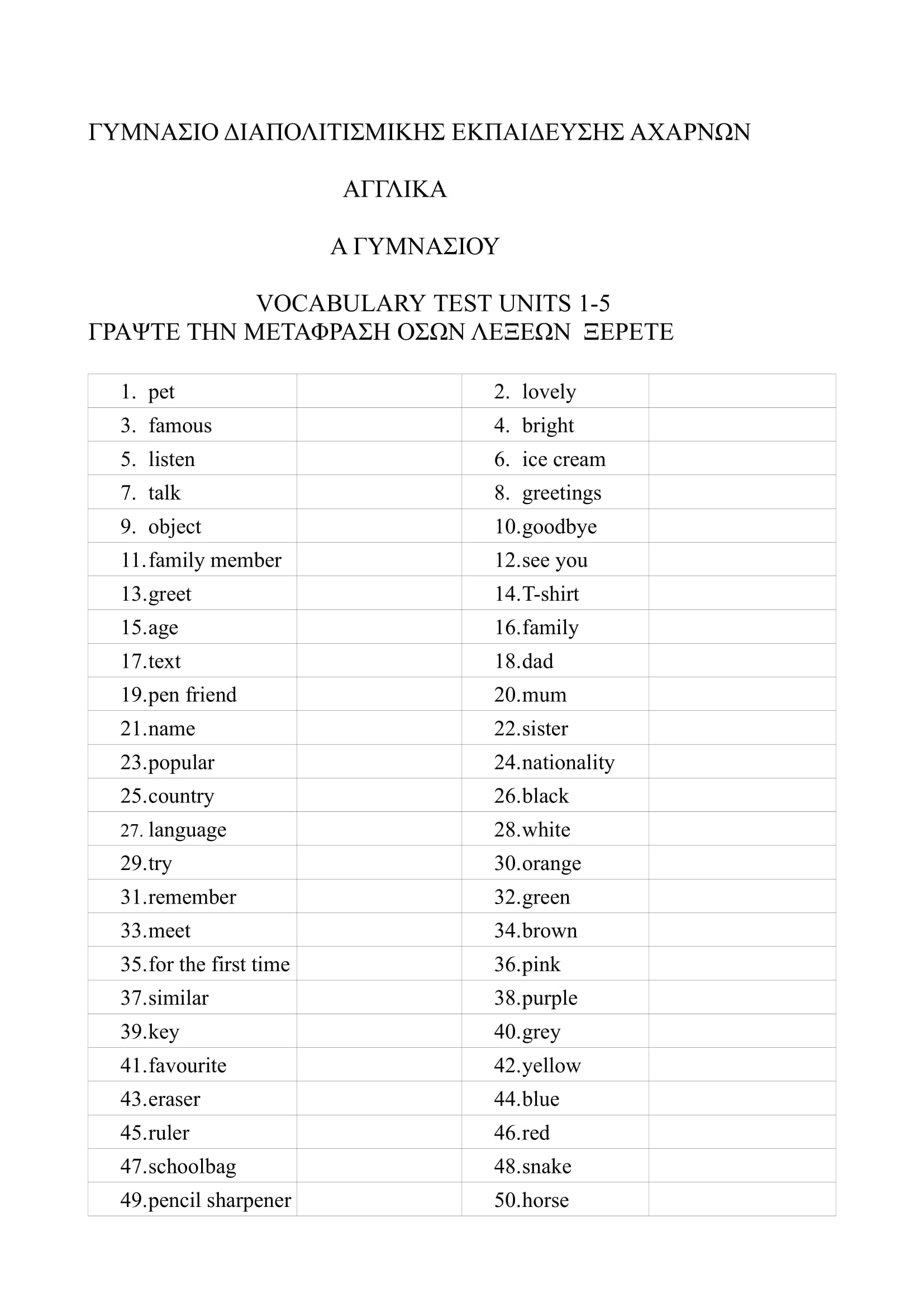
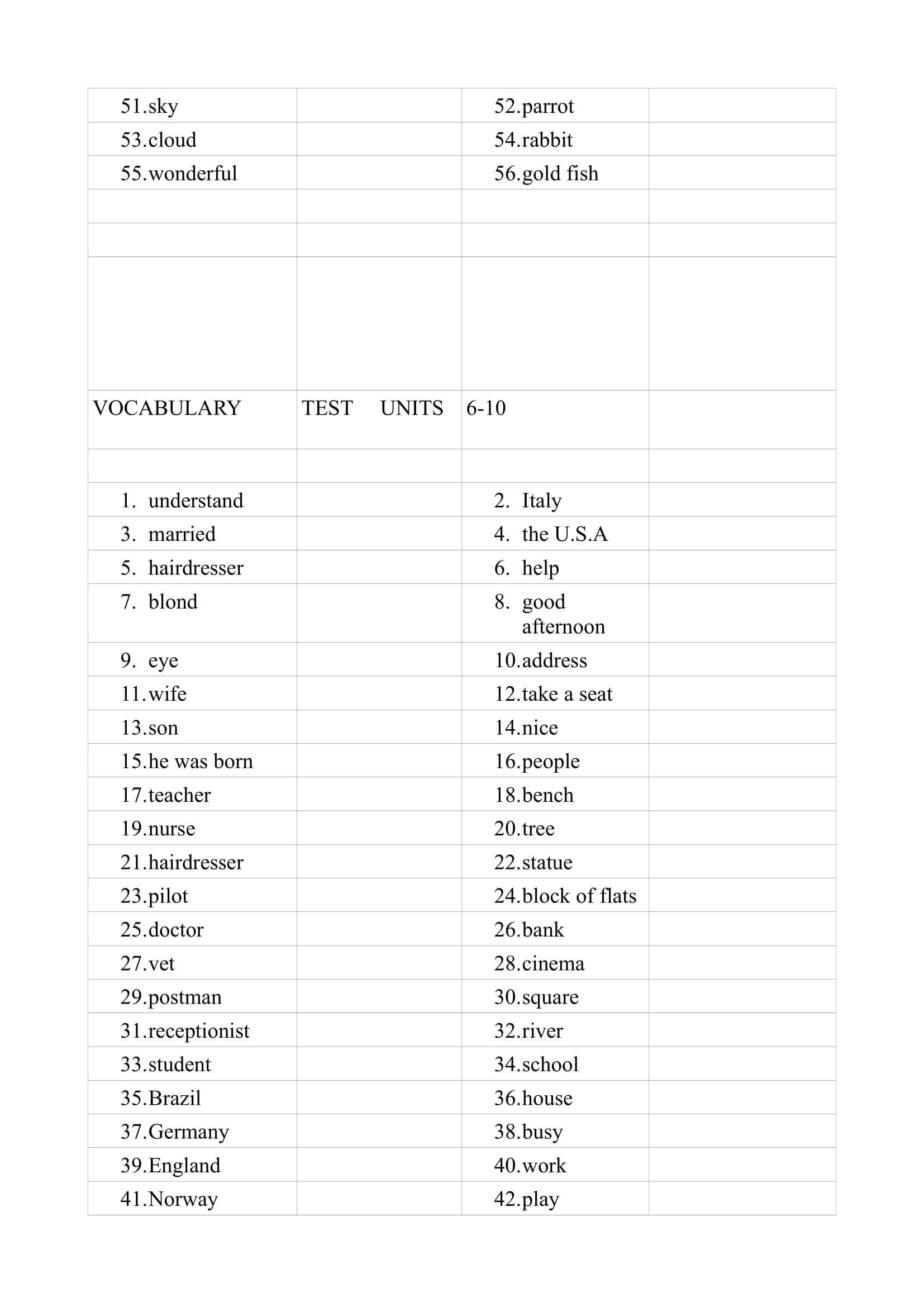


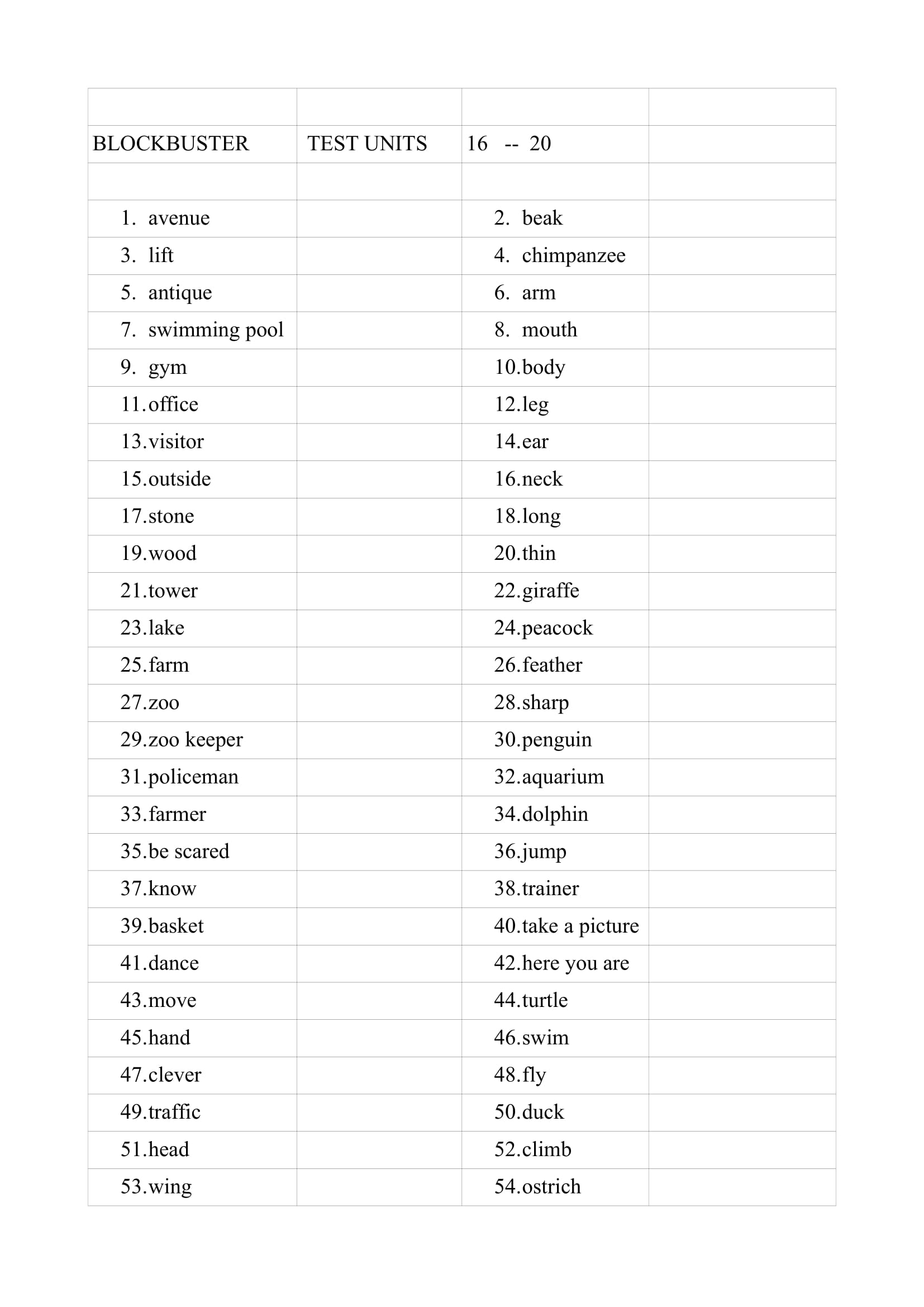


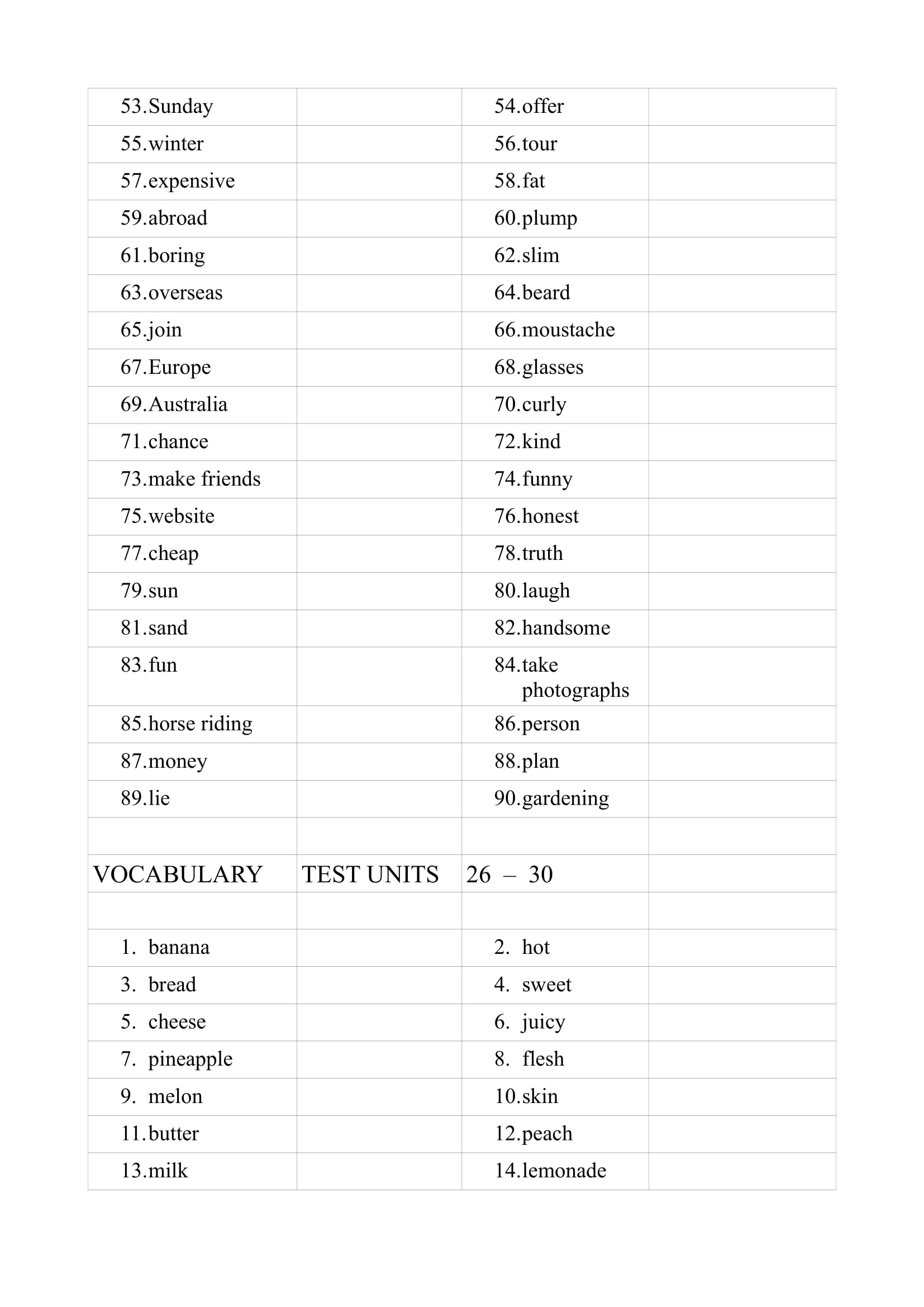
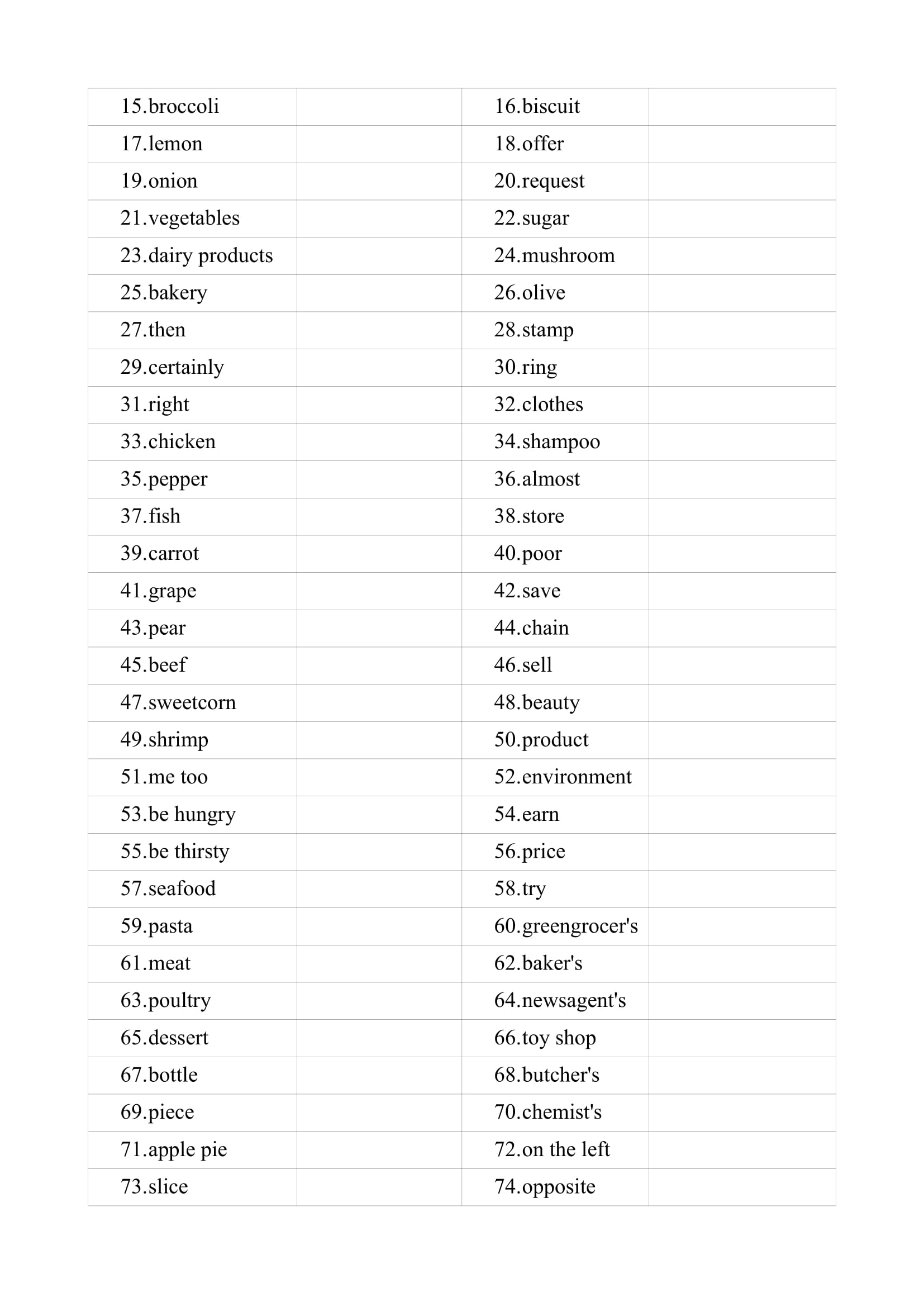
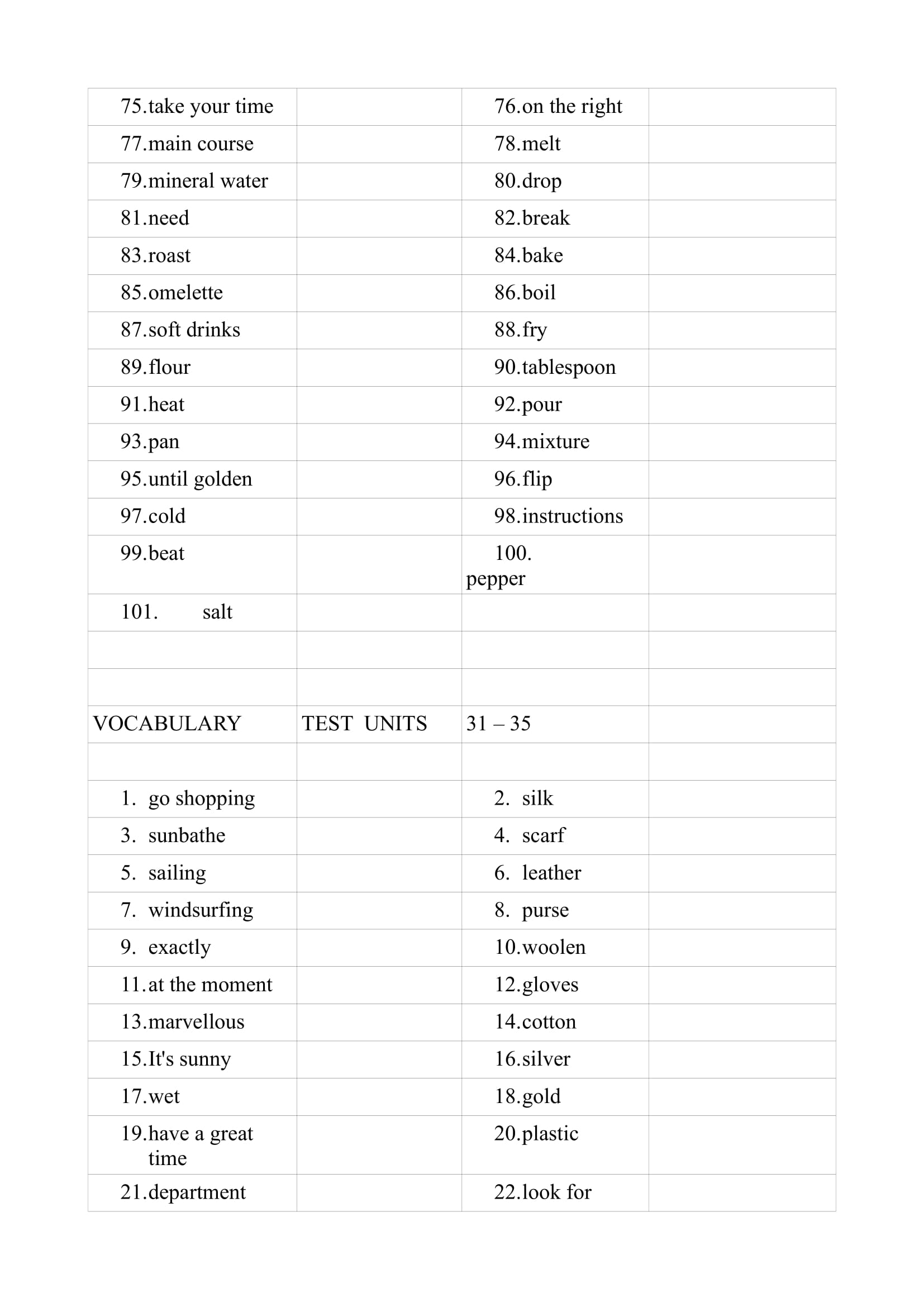
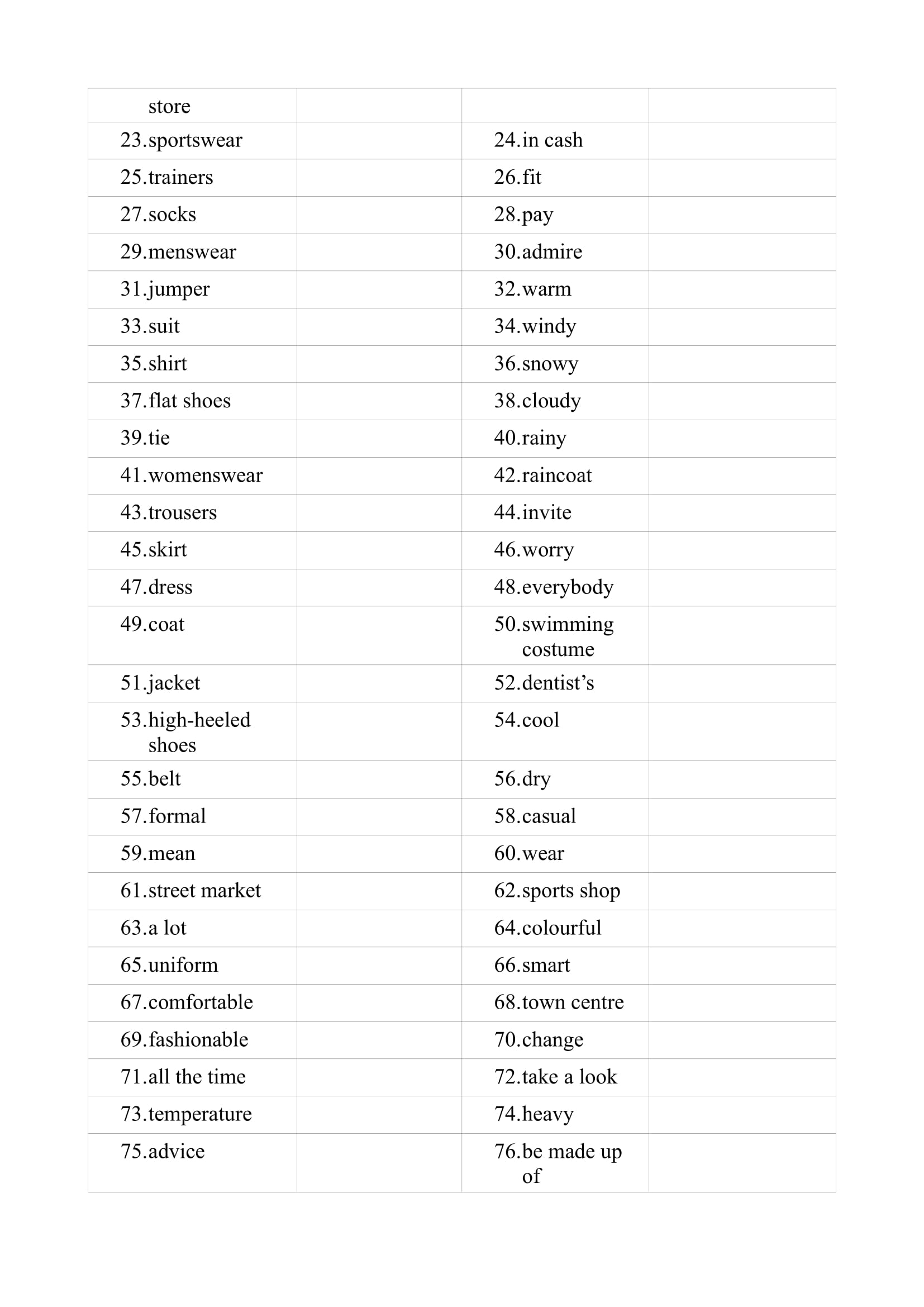
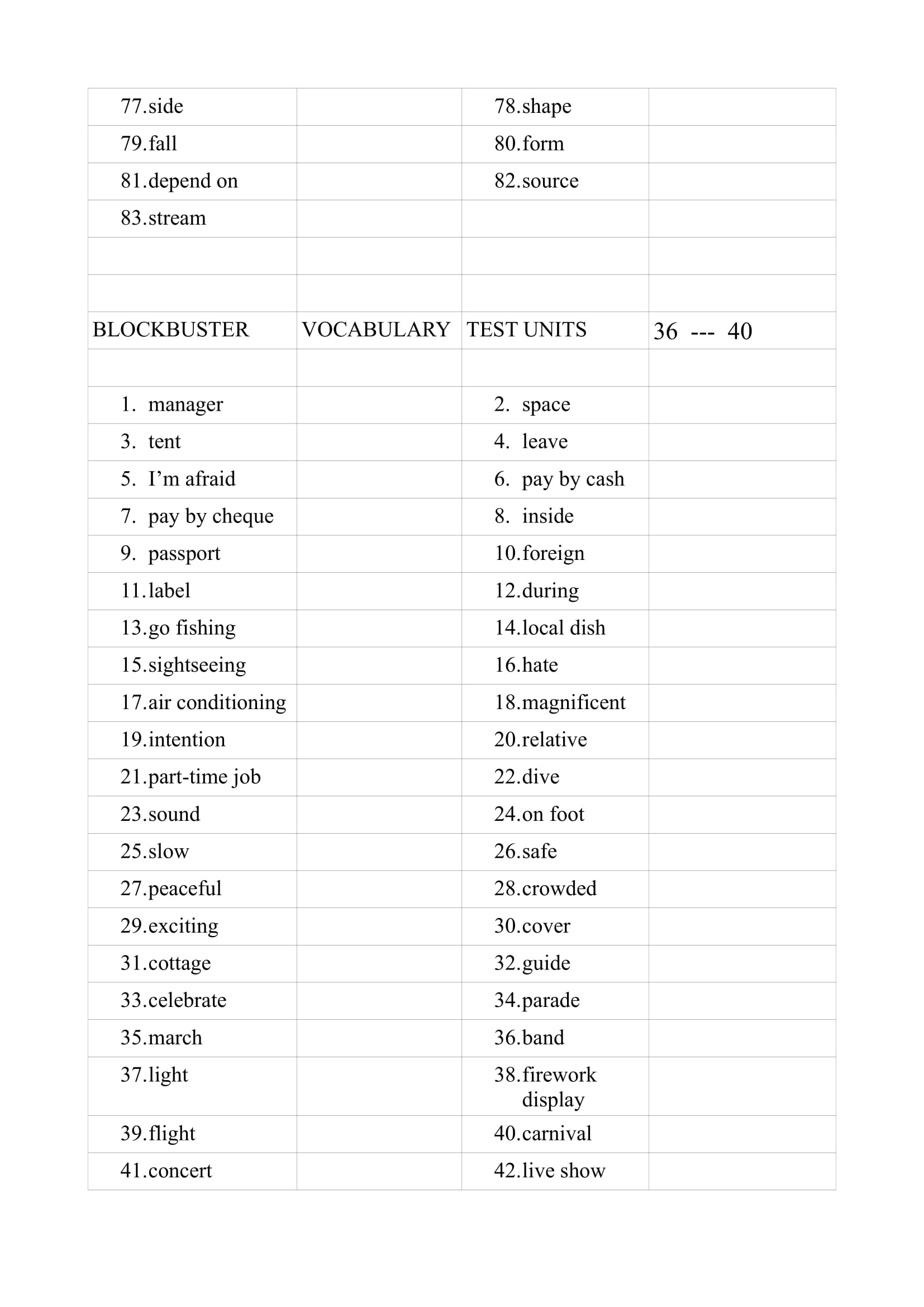




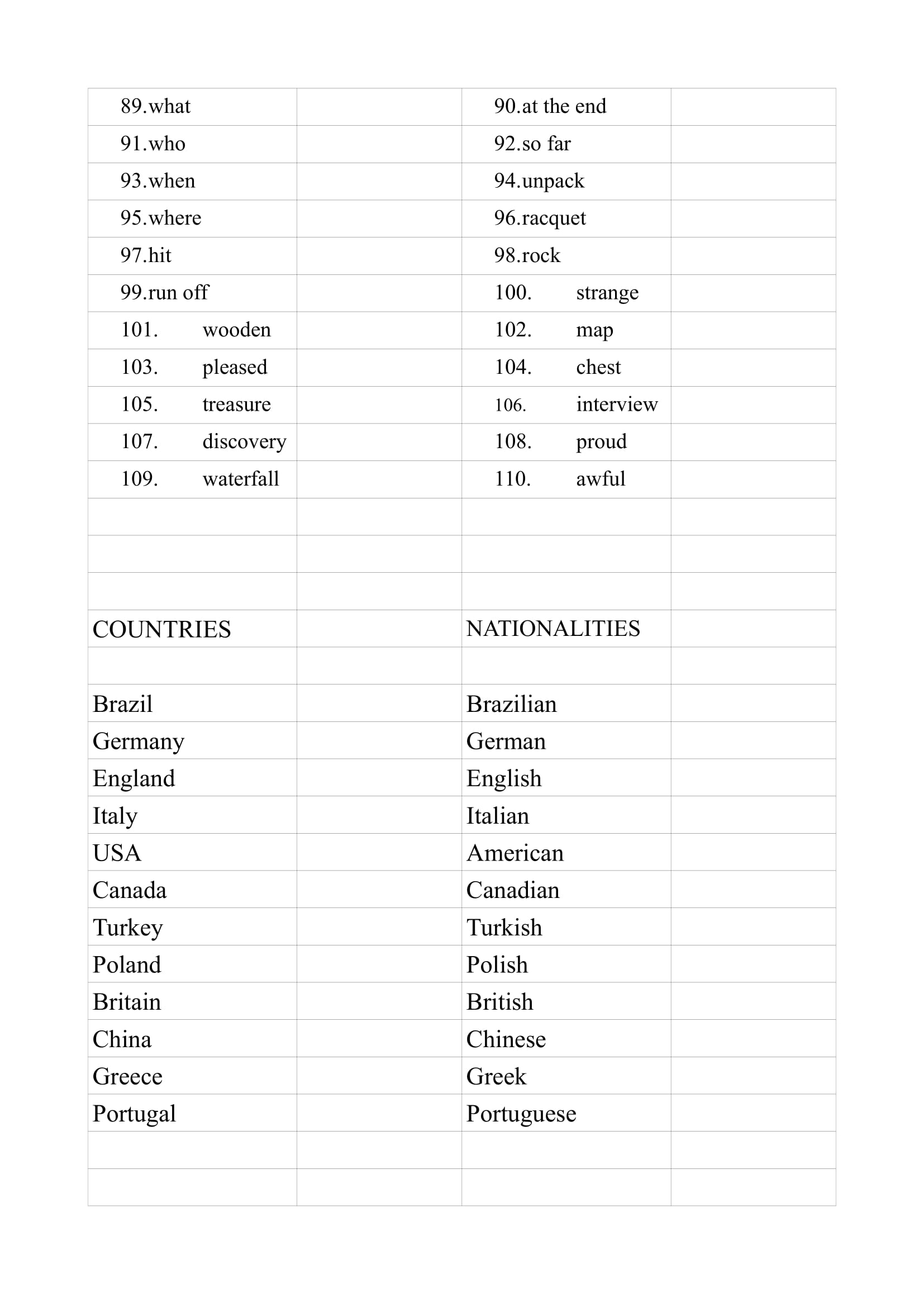

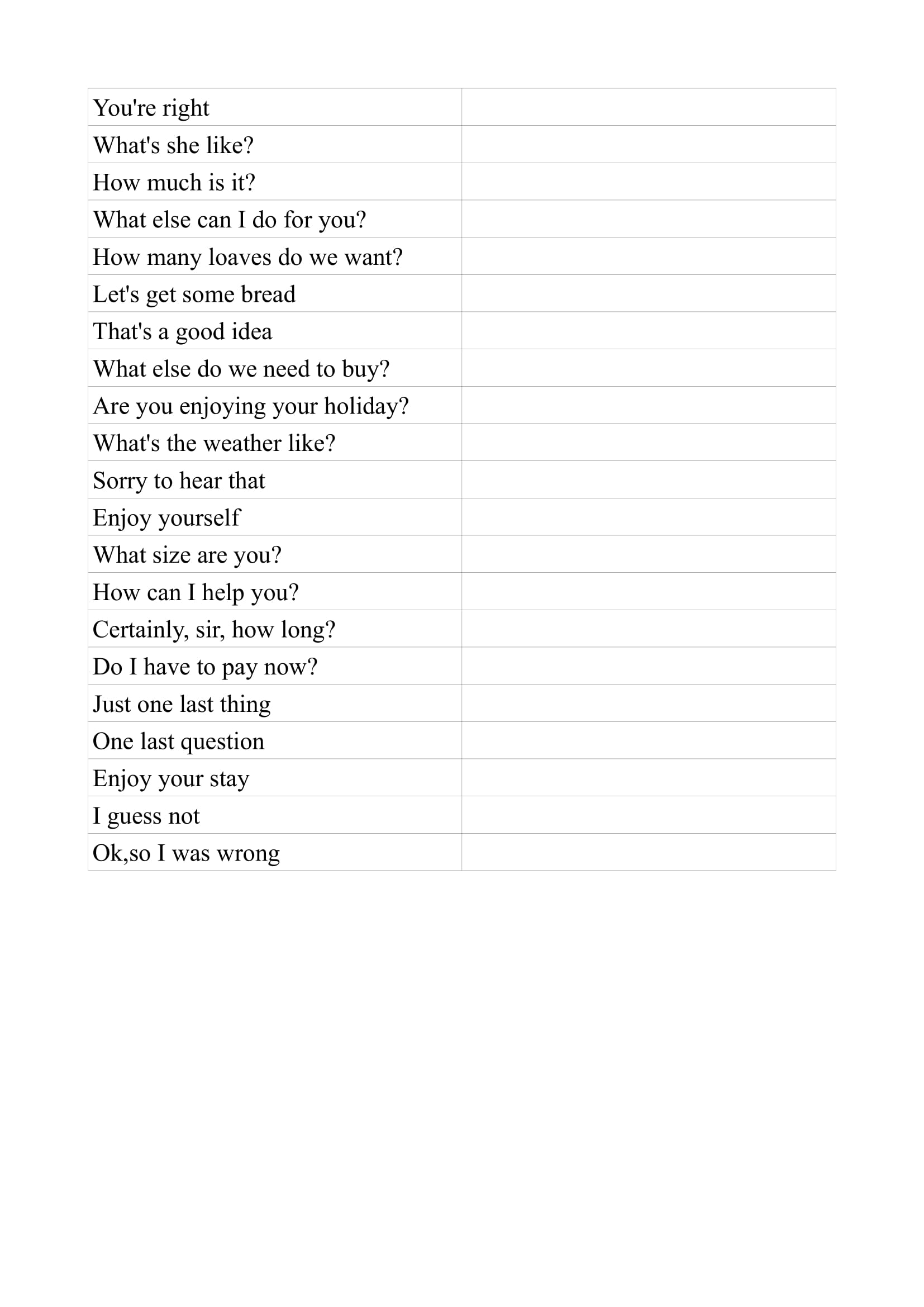
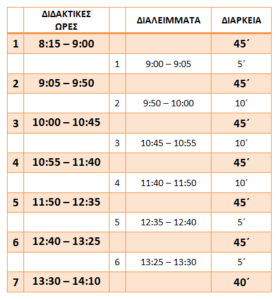
 Σας ενημερώνουμε ότι σε περίπτωση δικαιολόγησης απουσιών με Ιατρική Βεβαίωση ή Εξιτήριο Νοσοκομείου θα πρέπει απαραίτητα ο γονέας ή κηδεμόνας να επισυνάπτει και αίτηση δικαιολόγησης απουσιών.
Σας ενημερώνουμε ότι σε περίπτωση δικαιολόγησης απουσιών με Ιατρική Βεβαίωση ή Εξιτήριο Νοσοκομείου θα πρέπει απαραίτητα ο γονέας ή κηδεμόνας να επισυνάπτει και αίτηση δικαιολόγησης απουσιών.
